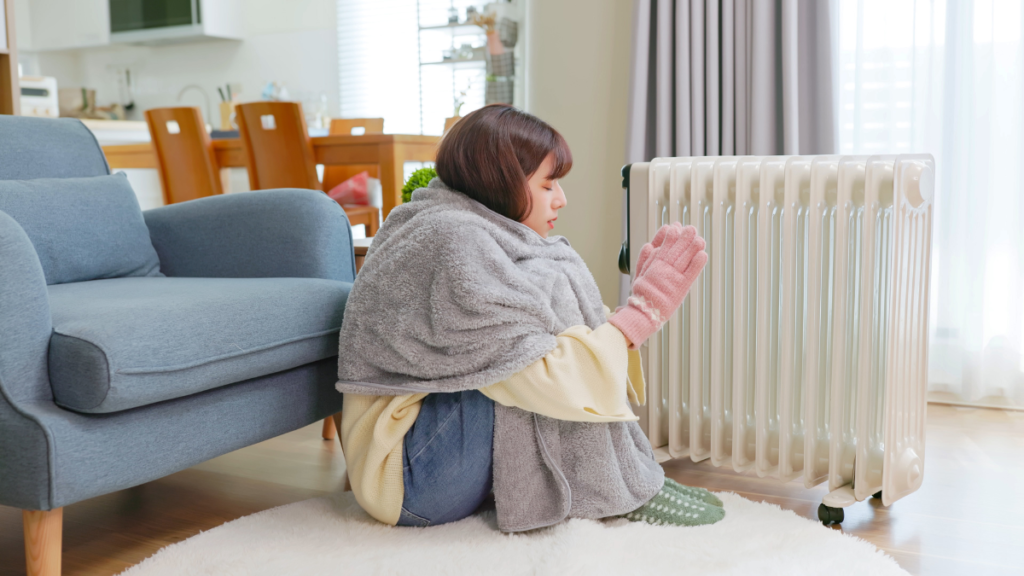Experiencing chills or feeling cold during your menstrual period is a common yet often overlooked symptom. While many women focus on cramps and mood swings, the sensation of coldness can be just as disconcerting.
Understanding why this happens can help you manage your symptoms better. Below, we delve into the various factors that contribute to this chilling experience during your menstrual cycle.
| Reason | Description |
|---|---|
| Hormonal Changes | Fluctuations in hormone levels can affect body temperature regulation. |
| Blood Flow Changes | Increased blood flow to the uterus may divert warmth from other areas. |
| Low Iron Levels | Anemia can lead to cold sensations during menstruation. |
| Stress and Anxiety | Stress can trigger a fight-or-flight response, causing chills. |
| Thyroid Issues | Hypothyroidism can result in lower body temperature and increased cold sensitivity. |
| Dehydration | Fluid loss during menstruation can lead to feelings of coldness. |
| Dietary Factors | Poor nutrition can affect your body’s ability to regulate temperature. |
Hormonal Changes
One of the primary reasons for feeling cold during your period is hormonal fluctuations. As estrogen and progesterone levels rise and fall throughout the menstrual cycle, they can impact your body’s ability to regulate temperature.
During menstruation, lower estrogen levels may lead to decreased vasodilation, causing blood vessels to constrict and potentially making you feel colder.

Blood Flow Changes
During your period, the body directs increased blood flow to the uterus to help shed the uterine lining. This redirection of blood can result in a sensation of coldness in other areas of your body. When the blood is concentrated in the pelvic region, peripheral areas, such as your hands and feet, may feel cooler.

Low Iron Levels
Many women experience a drop in iron levels during menstruation, especially if they have heavy periods. This condition, known as anemia, can manifest as fatigue and cold sensations.
Iron is crucial for the production of hemoglobin, which helps transport oxygen in the blood. A lack of iron can impair your body’s ability to generate heat, leading to an increased feeling of coldness.

Stress And Anxiety
Menstruation can often bring about stress and anxiety, which can trigger a fight-or-flight response in the body. This response can result in chills or cold sweats.
Additionally, the release of adrenaline can cause blood vessels to constrict, further contributing to a feeling of coldness. Managing stress through relaxation techniques or light exercise may alleviate this symptom.

Thyroid Issues
Your thyroid gland plays a vital role in regulating your metabolism and body temperature. If you have hypothyroidism, your thyroid may not produce enough hormones, which can result in a lower body temperature and increased sensitivity to cold.
If you frequently feel cold during your period and suspect thyroid issues, consulting a healthcare professional for evaluation is essential.

Dehydration
During menstruation, many women experience changes in their fluid levels. Dehydration can lead to a drop in blood volume, which may contribute to feelings of coldness. Staying well-hydrated is crucial for overall health, especially during your period.
Drinking plenty of fluids can help maintain your body temperature and alleviate some of the discomfort associated with menstruation.

Dietary Factors
Your diet can significantly impact how your body regulates temperature. A diet lacking in essential nutrients may lead to feelings of coldness during your period.
Foods rich in iron, vitamins, and minerals are vital for maintaining energy levels and proper body function. Ensuring you consume a balanced diet can help mitigate cold sensations and improve your overall well-being during menstruation.

FAQs
Why Do I Feel Colder Than Usual During My Period?
Feeling colder during your period can be attributed to hormonal changes, reduced blood flow to extremities, and other factors such as low iron levels or dehydration. Monitoring your symptoms and making lifestyle adjustments can help manage this feeling.
Can I Do Anything To Stay Warm During My Period?
Yes, wearing warm clothing, using heating pads, and consuming warm beverages can help keep your body temperature stable. Staying hydrated and eating a balanced diet can also improve your overall comfort during menstruation.
Should I Be Concerned If I Feel Excessively Cold During My Period?
If you experience extreme cold sensations or other concerning symptoms, it may be wise to consult a healthcare professional. Conditions like anemia or thyroid issues could be at play and require medical attention.
What Dietary Changes Can Help With Cold Sensations During My Period?
Incorporating iron-rich foods like spinach, red meat, and legumes, along with maintaining hydration, can support your body during menstruation. Additionally, consuming warming foods and beverages can help counteract cold feelings.



